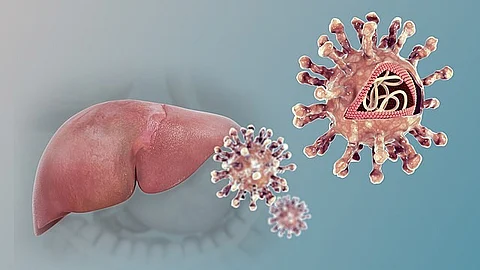Kennedy v. Braidwood Management, Inc. is a pending Supreme Court case challenging the Affordable Care Act’s requirement that health insurance plans cover certain preventive services.
While the impetus for the case is mandated coverage for PrEP HIV-prevention medication, other preventive services with an A or B rating from the United States Preventive Services Task Force could also no longer be covered.
Michigan Medicine physicians have identified a simple one-time hepatitis C screening that received a B rating in 2020 as a potentially affected service.
Hepatitis C is the leading cause of cirrhosis and certain liver cancers.


